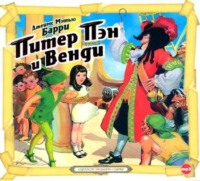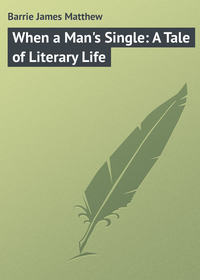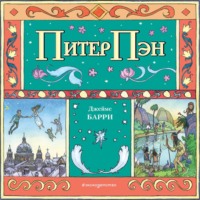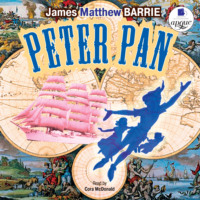 полная версия
полная версияA Widow's Tale, and Other Stories
"I come on no ghostly errand," said Mr Melville, "but concerning the affairs of this fleeting world: which have their importance too, as you will agree with me."
"That do I – and whiles more bewildering still," said the Curate of Pittenweem, rubbing his hands. "We have no doubt the luck, my kind neighbour, to take different views on that subject too."
"It may be so," Melville replied gravely, but he added no more. He had no inclination to disclose his hand, as his opponent had done involuntarily by those last words behind the curtain. Low of Pittenweem looked at him fiercely, but without any visible change of tone.
"And how's all with you, Pate?" he said with a smile. "I heard a bonnie story the other day of one of these wild soldier fellows that are just a pest on the roads, and how he was scared away and took the road west, meddling with no person: for fear of a certain muckle rider, bigger than himself, from the Over-Kellie gait."
"Oh, and it was me, Sir John!" cried Jean; "and the loon was after me on my pony, till there came in sight – " Jean stopped suddenly, crimson all over, half with annoyance at herself for having spoken, half because of the smiling glance which Low directed from her to Peter Oliphant, and back again – a smile which developed into a low laugh of malice, and which filled her with unaccountable shame.
"There came in sight – the palladin, the grand knight" – he said these words to the accompaniment of his laugh, till every line of Peter's rustic dress, the blue bonnet in his hand, the heavy shoes on his feet, seemed to come out under the sarcastic look, as if the curate had been holding up a candle to show their roughness. And then he turned away, still laughing softly to himself, and rubbing his hands. "I will not interrupt such braw company," he said. "Good day to you, Mistress Jean: and I wish ye, madam, a good fulfilment to all your virtuous wishes; and one of those days ye can tell your mother, Pate, I'll come in for a crack, and to hear the country news. Brother Melville, we'll probably not be so long, you and me, this time of meeting again."
"Maybe not, Maister Low," said Melville.
"Wherever the – is, there will the eagles be gathered together," said the other, going lightly towards the door, with a wave of his hand and a nod of his head. Mr Melville drew a long breath.
"That is no canny forerunner," he said, "Peter, my good lad, for you and me; but I will haste and see if the auld knight is weariet, or if he'll see you still. Bide here for me."
When Peter was left alone with the young lady, there was a pause of much embarrassment between these two young people, so suddenly brought together by malicious suggestion, and by the involuntary flash of thought that went from one to another, in the unlikely and unexpected combination, in which all suddenly, in a moment, they had been placed. Jean, who was full of saucy words at other times and in other company, at this moment, when she would have given all her small possessions for the power to throw one jibe at him, could not find a word to say. It was Peter, whose grave mood had more solidity and could better resist the excitement of the situation, who was the first to speak. "I have a charge from my mother, Mistress Jean, with her duty – which is maybe more than is due from her to you; but my mother, Lady Jean, though she is the best woman in the world, was but a farmer's daughter, and cannot get out of her head that the Laird's daughter is a Princess in the land."
"I have no quarrel with her for that," said Jean, restored to herself; "but if I am a Princess you will maybe live to be the King. Here we are, us two, and it's between us, Maister Peter. You are the just heir; but I am the more just if it were not that I am a lassie, and whose fault is that? I am sure it is by no will of mine."
"My Lady Jean," said Peter, "you say well it is my just right, as the next man of the blood; but if by Sir Walter's will it should fall to you, as may be – mind you this, whatever happens, I'll stand for you through fire and water, and be your man, and a true kinsman, as long as I live."
"No me!" cried Jean, giving a spring in her excitement. "If it falls to you, I'll fight you every step, and go to the law with you, and never yield while I've breath!"
Peter looked at her with a tender admiration – but that ineffable way of taking the girl's hot words as if they meant nothing, which not even love itself can make palatable to a girl. "Well-a-well," he said gently, "the one thing and the other they mean just about the same."
"But nothing of the kind," she cried, almost with a soft shout of passion, "nothing of the kind! they mean – " here it suddenly struck Jean quite irrelevantly, as he stood before her with a deprecating smile, by every turn of his figure and change of his face recommending himself to her, seeking to please her, asking nothing better than to serve and help her, – suddenly and supremely that he was a bonnie lad, that nobody had ever looked at her like that, nor spoken to her like that before. She stopped and gasped and put out her hand to him, which was as unexpected as any other of her movements. "Cousin Peter," she cried, "there's my hand upon it; we'll be grand enemies! We'll be true as auld Sir William's sword, that he keepit the Castle of Stirling with, that hangs there upon the wall. We'll fight fair, and never say an ill word one of the other. And there's my hand."
She expected nothing but a comrade's grasp; but young Pate of Over-Kellie had the gracious manners of the old chivalry, without knowing whence they came. He stooped low almost to his knee, and kissed the hand held out to him – an unlooked-for homage which altogether overwhelmed the rustic maiden, who was scarcely by her own nature a lady of romance. And at that moment the heavy curtain was drawn, and Mr Melville's head put out calling Peter. The sudden light of a delightful smile shone over the minister's face. "Ah!" he said, with a soft laugh, which was not of ridicule but content. It was enough, however, to send Jean back to her window-seat, all one blush, and to make Peter draw himself up almost to more than his stature, as very red and portentously serious he followed, transported out of all his nervousness about Sir Walter – into the presence of the old knight.
Sir Walter sat by the fire, which smouldered sullenly, as if it felt the inappropriateness of its presence on a warm spring day, as the centre of the scene. But the old Master of Kellie was cold, the blood ran slow in his veins, and all the fires of living were as low in him as the dull glow in the coals. The gown in which he was enveloped was lined with fur, and wrapped closely round him; and his head was so sunk into its soft collar that the effect of his upward look was as if a pair of eyes alone looked over his raised shoulder at the young man who came in. But there was life in the look, which contradicted every other sign of diminished vitality. It seemed almost to strike at Peter like the flash of a blade into the air. The steel-like light quivered, and then suddenly the old man turned his head away. There was a pause, and both of his visitors thought for a moment that the old knight had fallen asleep or lost consciousness – till at last the minister spoke, half alarmed. He touched with a finger the wide sleeve of Sir Walter's coat. "Here is the young lad, Sir Walter. Come in bye, Pate – show yourself – and be not blate. What, man! ye are here in what may be your own house."
Peter took a step forward into the room, opposite to the light which fell full upon him, his somewhat rustic air lost in the temporary exaltation of his look; but Sir Walter had returned to his fire, and looked at him no more. His voice came out of the fur collar of his gown, as out of a cave. "Ay! the young lad, say you? And what is his will, and his errand here?"
"Speak to him, man; speak to him!" said the minster, in an undertone.
"I have no purpose, Sir Walter," said Peter; "but that ye were thought to send for me; and me – I was very willing to come, as your kinsman, and to ask how you did."
"Ay!" said Sir Walter again, "as my kinsman! Blate! I see little sign that he is blate. Let him speak for himself. There are plenty of loons in Fife that will swear themselves my kinsmen, however they came by the name."
Peter was stung by this disdainful speech. "I am no loon," he said, "minister, as you well know; and as for how I got the name, Sir Walter he kens weel, seeing I am but his second cousin, when all is done, twice removed."
"Ah, so! are you all that?" said the old knight: he raised his head, and once more Peter felt himself struck as by a flame. But again the light quivered, and Sir Walter swerved, and his head sank among his furs. Then he added, averting his look, "What is your will of me, young man?"
"Nothing," said Peter. His heart swelled, a sudden sense of pity moved him for the desolate old age before him – so lonely, so void of all the charities and tenderness which ought to encircle the old. "And yet," he said, a remorseful sense of all his own advantages over this solitary, chilled, and suffering old man melting his spirit, "Sir Walter, if there was any pleasure I could do you, for the sake of the drop's blood between us, and because you have none of your own – "
"Eh! eh! what is that he says? – what is that he says?"
"Sir, I would fain, fain do you a pleasure, if that were possible," Peter said.
It was some time before the old knight spoke. "Gramercy for your kindness, lad," he said; "I have plenty to do for me all I want. I seek no service from the like of you."
"Yet it would be given out of a good heart," Peter said.
These words of manly kindness to the weak, given with an insistence of which Peter, blate of nature as the minister had said – that is, proudly shy of expressing emotion, as it is the drawback of his countrymen to be – would not have believed himself capable, made a curious commotion in the still air of that chamber, where all was stagnant, and life and charity were seldom heard. Sir Walter put out a blanched hand with a gesture to the minister, calling him forward, "Ye have tutored the lad what to say."
"I would think shame," said Melville, "to try to tutor what's native to a gentle spirit. And, Sir Walter, you are more understanding than to believe what you say."
The old knight dropped his head again, and was silent once more. Then he said, without raising his face, with his eyes fixed on the low red of the fire, and a voice half buried in his fur collar, "Did I hear ye say Pate?"
"His name is Peter – "
"Pate," repeated the old man, vaguely. "There was once another – but keen, keen as a hawk, and gallant, and fine in every limb. Not like that yeoman from the fields. Take him hence, take him hence! There is that in the turn of his head that goes, that goes" – he made a pause, and gave forth a long slow breath "to my hert!"
And again there was silence. Peter would have stolen away by natural instinct, but did not dare to break the deep stillness by a movement, and the minister stood doubtful, hesitating, afraid to shorten an interview that might have important results, yet afraid at the same time to injure the impression that had been made.
"Ay, Pate," Sir Walter said almost to himself, "Pate – like day to night, like a prince to a churl – but just a turn of the head, a trick of the voice. Eh! ye are still here? is it a service do ye think, young man, to spy on the privacy of one that, kinsman or no kinsman, is the head of your name?" he raised himself, putting his hand upon the table – "in Fife," he added with a faint laugh, "in Fife – saving the rights of my lord. Ay, my lord, that's the question. Well, sir! I thank ye for your coming, and dismiss ye from further attendance. Master Melville, at your leisure I will see you again."
The hall was vacant when Peter, with strange visions through his brain, confused with his own good impulses and the less kind ones that came hurrying after, stepped into it again. He did not know what he had expected or hoped for, but there was disappointment and a little offence in his mind. He was not sure if he had acquitted himself as a man in this unusual trial or if he had failed. He was new to all these strange and conflicting feelings. The old man in his chamber, the death in life which Pate's animated youth had never seen before, and the young lady in the hall, had given to him equally a great thrill and sensation of the novel and unknown. Life seemed to have begun for him to-day.
CHAPTER IV
In Sir Walter's chamber, after that interview, there were many comings and goings. Sir John Low, as it was still the habit to call the curate, came every day, for the knight, in the many fluctuations of his mind, had at the last swayed towards the ritual and formulas to which he had been accustomed in his youth, and there were consolations boldly administered, though with precaution, by the curate which the minister, although no further removed than the next parish, would have esteemed sinful mummeries and offences to the truth. Mr Melville gave no absolution, which the curate dispensed with confidence, soothing the aged gentleman with rites by which his wavering mind was supported, though he could not give above half his attention to them, but sat turning over and over in his mind the one question that occupied him even when the viaticum was put to his lips. Sir John came and went, and a silent man from St Andrews, with a soberly clad attendant bearing a bag full of papers and an inkhorn, also came and went, spending hours in the Castle, and called in ever for a new discussion by the major-domo, Neil Morison, who shared all the consultations, to which indeed his master gave but the same distracted half attention which he gave to the rites of the Church. The time had come to him when he could not fix his mind to anything – whether it was those matters which were pressed upon him as for his soul's weal, or those others which were in reality the permanent subjects of his thoughts. Sir Walter, indeed, amid his dreams and distractions, which broke everything with which he was occupied as an image reflected in water is broken by every blowing breeze, was conscious of many people coming and going, who were not seen of men. While he pondered over the disposal of his property, his sons, to whom it should have gone by course of nature, came and went fitfully, more clearly realised at those moments when, in his malaise of mind and body, he became impotent of all other thoughts, and turned towards them as of old. Something had brought them back into the still air of that death-chamber – something which no one knew of, which the old man himself did not understand. It was the look of young Pate Oliphant, the turn of his head, something in his voice, those subtle tokens of kin which come and go, broken always, like that same reflection in water, not to be traced, but thrilling for a moment now and then through every nerve. That fugitive likeness had not inclined him towards Peter of Over-Kellie. It had struck out rather a tone of wrath, of harsh contrariety and opposition in his mind – with the impulse to push that interloper out of his way who dared to remind him of Pate, his own Pate of the other times. In his confusion of mind he did not remember how that suggestion came – had he dared to speak of Pate, this stranger who had no right? He forgot how it came. But Pate and the others had come back: they were vaguely about him, always eluding him when he would have appealed to them – present there he felt, by some secret understanding, known only to himself and them, which if he betrayed it would harm them all. And Sir John, quieting all the vague terrors in the old man's mind in respect to death – terrors only half real, too, for nothing was very real with Sir Walter – mingled other counsels, suggestions of another name in which there perhaps was an escape from the confusion of his soul.
The silent man from St Andrews disappeared one dim morning when the world was all white, stifled in an easterly haar, after a sitting of an hour with Sir Walter in his chamber – and that afternoon when the minister of Carnbee appeared he was informed that all was nearly over, and that the old knight, who had hung so long between life and death, was in the very act of ending. The curtain was held back that Mr Melville might enter; but as this was at the very moment when Sir John was bending over the couch of the sufferer administering those rites which were sacrilege to the preacher, Melville solemnly and indignantly withdrew, and stood outside till all should be over. He stood against the curtain with a stern expression on his face, his eyes half closed, his lips sometimes moving. I fear he was angry that this mummery should be permitted in a "Christian land," and thought many a harsh word of his brother, even while he prayed fervently for the passing soul which these rites were dismissing in peace. A little time after Sir John emerged, solemn too, yet with something of triumph in his look. "He hath gone forth well provided on his last journey," he said; "his end has been peace." "If you call that peace," Melville could not keep from saying; "I hope his end was also justice." "It was judgment," said the other priest, walking back as if in a procession with his little vials: and the old hall, so large, so empty, its great windows full of the whitened mist, the shroud of the haar that covered all things, looked more desolate, cold bare, and empty of life than words could say.
Before Sir Walter was carried to his rest in the family vault in Carnbee kirkyard it was known all over Fife that Kellie Castle and estates had been left by his will neither to his sister nor to the next of kin, but to the head of the family, my Lord Oliphant, then in London with King James, and not likely to put himself to much trouble in doing honour to the funeral. It is true that he was the head of the family, and also that there existed an additional link in the fact that Sir Walter had married his sister. But the fief of Kellie was one which came not from the parent house, but was acquired for his own hand by the original holder, the founder of this branch, so that its bequest to the chief was no reversion, but a free gift. Lord Oliphant was not rich; and poor as had been the state kept by the old knight in the lingering end of his days, his inheritance was not one to be despised. The knowledge made a great sensation in the neighbourhood, where there had been many speculations on the subject, the claims of Mistress Jean and of Pate Oliphant having been largely discussed. By some of the neighbours it had been believed that Sir Walter had no right to exclude the heir-at-law; but this had been warmly disputed by others, who held that the death of all the immediate members of his own family left the old knight a free hand, and that, in the absence of any legal settlement, he had a right to do what he liked with his own. His funeral brought together all the gentry from that side of Fife, both gentle and simple indeed, of the East Neuk, neighbours and tenants, a numerous company. And at this ceremony the positions of the two clergymen were reversed. Sir John of Pittenweem was not looked upon with very favourable eyes in the Kingdom, and his return to the ancient ways, though it had to be winked at by those who were aware that authority was no longer entirely on the side of the Reformed Kirk, and that protection was now extended even to something very like the odious Mass – was much against him in the opinion of the multitude. That he had "played his cantrips" about the dying man was whispered from one to another, and that he was a rank prelatist was universally known. Maister Melville, that excellent and sound divine, had now all the say.
There were other strange features in this funeral which were long remembered. For one thing, there was nobody to conduct the mourning with authority. Peter Oliphant stepped forward to follow the coffin, and no one gainsaid his right to take the place of chief mourner; but he was modest and a little backward in marshalling the others, notwithstanding the support he received from several of the chief gentlemen present, who acknowledged the title of the next of kin, even though it was known that he was not the heir. But was he not the heir? would not natural right prevail, though in opposition to an old man's testament, a doited old man! These words were freely spoken even as the long procession set out upon the heavy country road, winding dark and silent between the hedgerows. Was he not a doited old man? Had not he taken, as somebody had related, Pate Oliphant for his own son Pate, who, poor lad, had been but a rover, and broken, folk said, his father's heart? And there were some even who whispered that it was with the idea that Pate of Over-Kellie was his own Pate, and to punish that ne'er-do-weel, that Sir Walter in his dotage had left his lands away from the natural heir. This discussion, however, was not all or even the most remarkable part of what occurred. For at the cross-roads, where the way to Carnbee turned off from the highway, a young gentleman, followed by three or four retainers, came up almost at a gallop, with every sign of hard riding, and in his travelling-dress, and made an effort to disturb the decorum of the funeral by forcing his horse into the line and taking the place next to the coffin where Pate walked leading the procession. This incident caused a pause, and such an interruption of the solemnity as threw the line of the mourners into confusion, and turned the conventional stillness and whispered conversations of the funeral party into something like a brawl. The new-comer proclaimed himself the representative of Lord Oliphant, his son, sent to render the last honours to his kinsman, and could only be prevented with the greatest difficulty from taking his place forcibly at the head. This noisy interruption, and the bad manners of the young gallant, who, when prevented from taking the place of Pate, rode on himself and his followers at either side of the coffin, breaking the quiet not only by the excitement of their appearance but by the clangour of their ride, and the breach of all those Scotch decorums which have always been so rigid in respect to burial. Brawling at such a moment was not indeed unheard of, any more than at any other moment, in the temper of the times. But the depths of the peaceful country, where no such thing had been thought of, and where my Lord Oliphant had neither friend nor enemy, was displeasing to all. Nevertheless, perhaps, had it not been for the steady backing of the minister and one or two of the elder men, the position of Pate would have been a disagreeable one; for the sympathies of the gentry were more with the Master of Oliphant than with the humbler youth, whose blood they acknowledged, but whose breeding had been that of a yeoman rather than of a landed gentleman. Pate himself, however, proved his gentility by a bearing much more noble than that of the intruder. He held his place with determination and without flinching, yielding no step. And thus they carried old Sir Walter to his grave.
On the return, however, Pate was less certain of his right and less supported. It was the intruder then who had the upper hand. The elder men might look coldly upon so irreverent an assertion of the position; but the younger ones, who knew, or desired to know, the Master of Oliphant, were glad to push forward, to claim his acquaintance, and to accompany him back to Kellie Castle, where at least he had now the first right to be. Pate felt himself left behind to the company of the tenants and the smaller lairds, who, like himself, were rather patronised than on an equal footing with the great proprietors. Mr Melville made an effort to draw him into the quiet of the manse, which would have been safer; but it was more natural that, indignant and injured as he felt himself, he should prefer the sympathy of the others, who were full of angry suggestion and advice. The young man had been profoundly disappointed and cast down by Sir Walter's will. It was the destruction of his brightest hopes: but it had not occurred to him that the question was not closed, or that there might still be a chance of having justice done him. Now the utterances of companions were no longer in whispers. The doited auld man? Was he indeed a doited auld man? Pate thought of the heavy look, the dreamy eye, the sudden kindling like a flame of Sir Walter's brief words and moments of animation. He shook his head at first, but afterwards his own mind took fire. It was galling to hear the voices, already gay, of the others who clustered round young Oliphant, and streamed after him, full of pleasure in the excitement of the stranger's arrival, and also in their release from the gloomy ceremony: he and his friends came behind, and different were their tones and their looks.









